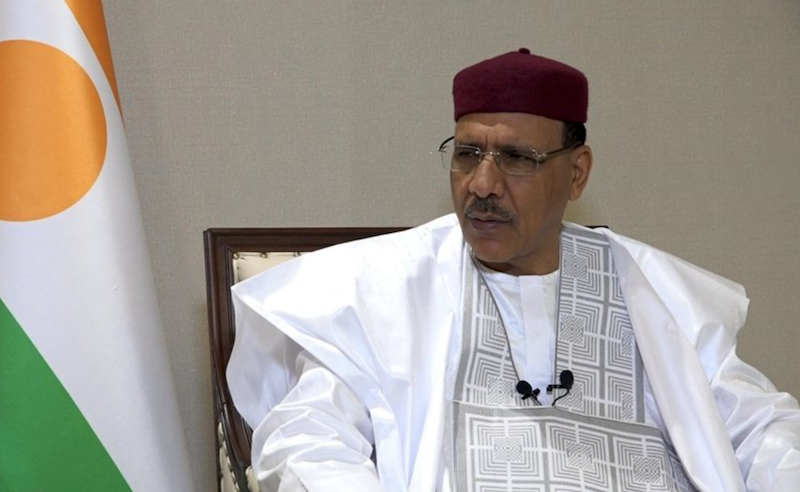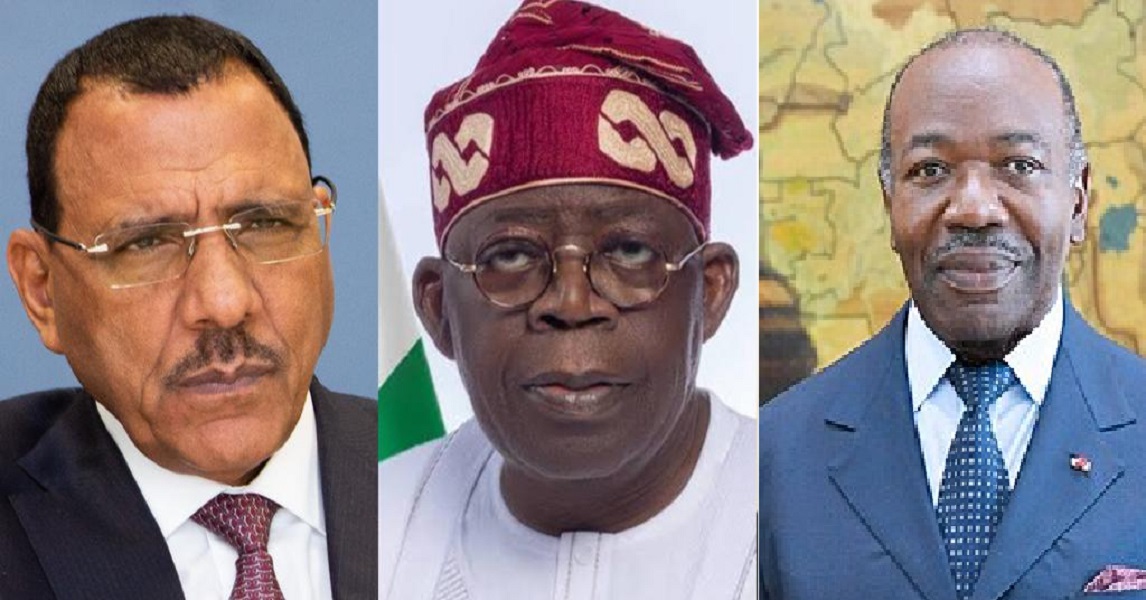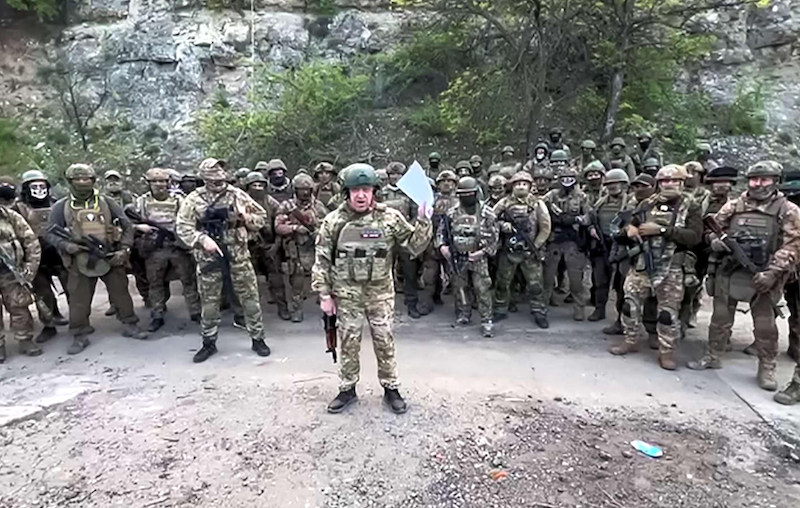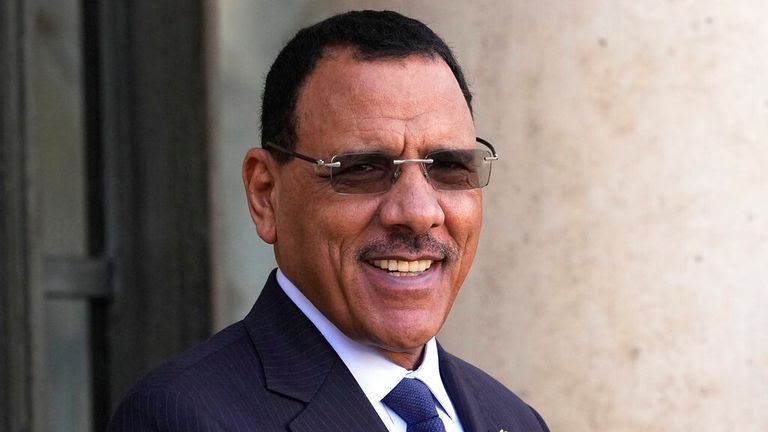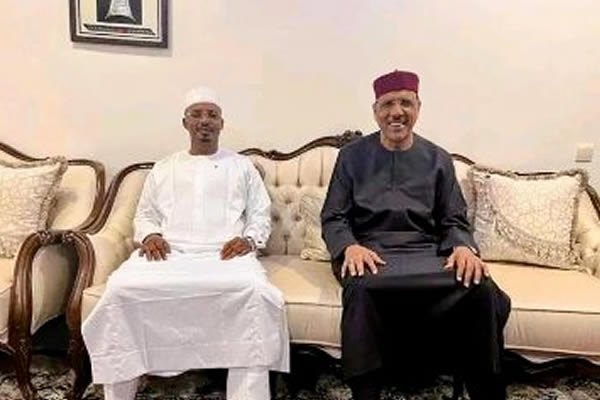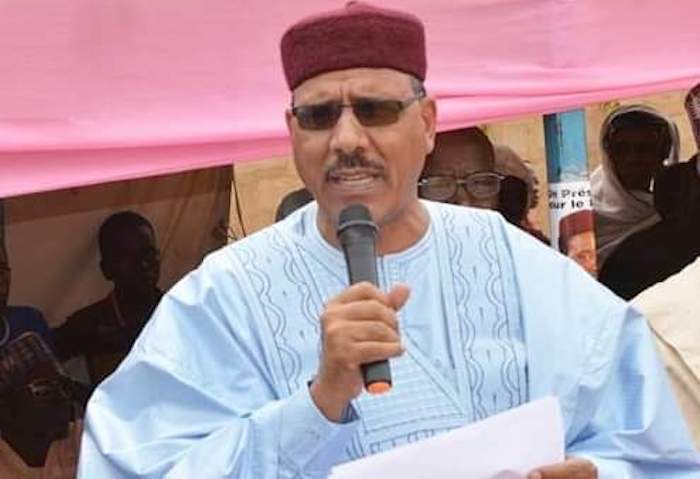Irrespective of the causative factors, a military coup is an aberrant violent seizure of state power that is only legitimized by its success. Hence, most countries of the world consider it treasonable, and punishable by either life imprisonment or capital punishment. It’s in this light that the July 26, 2023 military coup in the West African state of Niger, which saw the overthrow of the democratically elected government of President Mohamed Bazoum by a group of predatory opportunists led by General Abdourahamane Tchiani, is attracting not only continental concern, but global circumspection.
Against the backdrop of Niger’s present role as the central hub of France’s counter-terrorism operations in West Africa, General Tchiani’s coup portends a geostrategic realignment of forces within the region, especially as the military junta seems to be toeing the line of his counterparts in neighbouring Mali and Burkina Faso, who are openly repudiating the armed support of their former colonial master – France, as they gravitate towards Russia and its Warner Group mercenaries in their bid to tackle Jihadist groups, like the Islamic State in West African Province (ISWAP), al-Qaeda in the Islamic Maghreb (AQIM), and Boko Haram, that are spreading death and destruction across the Sahel region.
While the African Union (AU) has verbally denounced the Nigerien military coup, the regional Economic Community of West African States (ECOWAS) has gone a step further by threatening military intervention should the junta refuse to step down and reinstate the ousted civilian government of President Bazoum – a threat that has the backing of France and the US even as Russia is diplomatically calling for a negotiated solution. Expectedly, General Tchiani’s junta is maintaining a defiant posture, vowing to declare war upon any intervention force as it receives assurances of support from the military rulers of Burkina Faso, Mali, and Guinea.
Thus, the unfolding crisis situation calls for Nigeriens, and Africans in general, to hope and pray fervently for a peaceful solution, as the alternative of war and its attendant death and destruction will be of no benefit to anyone, except unscrupulous arms dealers and mercenaries like the Russian Wagner Group, which is well-known to be involved in several African conflicts, including those of Libya, Mali, Burkina Faso, and the Central African Republic (CAR), where it has reportedly committed war crimes and crimes against humanity in the forms of torture, sexual violence, summary execution of civilians and prisoners of war, etc. Suffice to say that Wagner’s prospective presence in Niger is a matter of grave concern to democracies like Nigeria, Ghana, Senegal, and Cote d’Ivoire, as they dread the spread of its negative influence across the West African region.
Established as a Private Military Company (PMC) in 2014 by a Russian oligarch, Yevgeny Prigozhin, Wagner Group has been involved in several bloody conflicts across the globe, including those of Syria, Libya, CAR, and Ukraine, where it has adopted brutal and barbaric war tactics. The group is known to have recruited thousands of prison inmates as mercenaries. Prigozhin, who is popularly known as “Putin’s Chef” due to his ownership of exotic restaurants patronized by the Kremlin, is an ex-convict who bagged a 13-year jail sentence at the age of 20 in 1981, although he served only 9 years. He leveraged his relationship with President Putin to form the Wagner Group, which has become a tool of Russia’s global aggressive militarism, especially in Africa, where it operates in a manner bordering on impunity.
In a September 3, 2022 report, the Daily Beast stated that Wagner’s mercenaries were involved in the gruesome murder of unarmed women in the villages of Bezere and Letele in western CAR, on December 6, 2021. The mercenaries reportedly killed and disemboweled several women, including pregnant ones, who were said to be the wives of members of the “Return, Reclamation, Rehabilitation (3R) rebel group battling the government of President Faustin-Archange Touadera. They were alleged to have cut open the women’s stomachs and spilled their intestines, as well as the foetus of the pregnant ones, on the ground.
Also, in a Human Rights Watch (HRW) report published by the Office of the United Nations High Commissioner for Human Rights (OHCHR) on May 12, 2022, more than 500 inhabitants of the village of Moura in Mali were slaughtered in a joint military operation conducted by the Malian armed forces and Wagner’s mercenaries from March 27 – 31, 2022. Survivors were forced to bury the dead in mass graves, while about 58 women and young girls were subjected to sexual violence. The Malian government subsequently maintained that the affected location is a Jihadist hotspot, but the HRW countered that most of the victims were innocent villagers.
In a related development, a July 18, 2023 House of Commons report titled “Guns For Gold: The Wagner Network Exposed” detailed how the mercenaries have been exploiting the gold and diamond resources of the CAR since 2017, such that a US intelligence official remarked that the country is now a “proxy state of Wagner Group.” Similarly, they have been partaking in the mining of Sudan’s vast gold deposits in the Jabel Amir hills of North Darfur, which is under the control of General Mohammed Hamdan Dagalo, aka Hemedti, who heads the paramilitary Rapid Support Forces (RSF) that is presently slugging it out with the head of the Sudanese Armed Forces (SAF), General Abdel Fattah al-Burhan, in the country’s ongoing bloody civil war.
Globally, mercenaries now operate under the dignifying nomenclatures of Private Military Company (PMC), Private Security Organization (PSO), Private Military Service Providers (PMSP), etc., but the primeval conception of the mercenary phenomenon remains what it has always been: marauding and buccaneering armed hirelings, who offer their services to the highest bidder. The British novelist, Frederick Forsyth, aptly portrayed the unscrupulous character of the modern-day mercenary in his 1974 novel, “Dogs of War.” In it, a British business tycoon, Sir James Manson, hires a mercenary named Carlo Alfred Thomas ‘CAT’ Shannon to topple the Soviet puppet-regime of a small African country called Zangaro, with the sole aim of controlling and plundering its vast deposits of platinum.
Otherwise known as “Soldiers of Fortune,” mercenaries are hardly bound by human rights principles such as the “Geneva Conventions of 1949 and Their Additional Protocols,” which details the rules of engagement in war situations and the protection of non-combatants like the wounded, the sick and infirm, prisoners of war, etc. Here, the infamy of the American mercenary group, Blackwater, comes to mind. In course of its operations in Iraq between 2003 -2007, Blackwater’s mercenaries conducted themselves in a lawless manner that climaxed in the September 16, 2007 “Nisour Square Massacre,” which saw the cold-blooded murder of 17 unarmed civilians.
The history of Post-colonial African internecine conflicts is replete with tales of the ignoble role of marauding mercenaries. The Congo Crisis of 1960 – 1965 heralded their presence on the continent. As the newly independent Congo descended into a violent ethnocentric conflict in July 1960, Moise Tshombe, the secessionist leader of the mineral-rich Katanga Province, enlisted the support of European and apartheid South African mercenaries against the nationalist Prime Minister, Patrice Lumumba, who was subsequently captured and killed on January 17, 1961, barely six months after leading his country to Independence on June 30, 1960.
Backed by Belgian intelligence and American CIA, Tshombe’s mercenaries were led by the trio of Mike Hoare, Bob Denard, and Roger Faulques. Rabidly anti-communist, Hoare was an Irish ex-serviceman who was nicknamed “Mad Mike” for his racism, sadism, and cruelty towards armed and unarmed black opponents – all of whom he blanketed as “Communists.” He would later in 1981 lead a failed military operation to seize power in the Seychelles. Denard was a Frenchman who subsequently gained notoriety for his 1975 – 1995 serial coup-plotting exploits in the Comoros, where he was lord and master. Faulques, a former French Army officer, later featured in the 1967 – 1970 Nigerian Civil War, with disastrous results.
Unlike what obtained in the Congo Crisis, the mercenaries’ aura of invincibility was shattered in course of the Nigerian Civil War. Pitched against well-drilled soldiers of the Nigerian army, the mercenaries who featured on the Bianfran side were outshined to the extent that their leader, Roger Faulques, was sent packing in October 1967 following a series of disastrous campaigns. His successor, Rolf Steiner, who was a German-born French Foreign Legion paratrooper, was also stripped of his command and expelled in December 1968 for gross incompetence.
Essentially, the Nigerian Civil War served to demystify white mercenaries, proving beyond reasonable doubt that nothing extraordinary lay in their vaunted abilities, and that they only excelled when matched against poorly trained and ill-equipped black opponents. It also showed that African army combatants were as good as their American and European counterparts, and that gone were the days when a half dozen white mercenaries decimated a battalion of African soldiers as portrayed in Western action movies.
From the foregoing, it is obvious that African states would be better served by well-trained and equipped regular armed forces, instead of their reliance on mercenaries who, lacking nationalistic and patriotic fervour, often turn out to be marauding and buccaneering characters that deliberately exacerbate manageable conflicts in their bid to maximize their gains.
In this wise, Africans must be wary as mercenaries tend to collaborate with autocrats seeking to perpetuate themselves in power. The recent case of President Faustin-Archange Touadera of the CAR is instructive: On July 30, 2023, President Touadera, who relies on Wagner mercenaries for protection, organized a sham referendum that saw the approval of his removal of term limits from his country’s constitution, thus assuring himself of perpetual rule over his troubled country.
Dennis Onakinor, a global affairs analyst, writes from Lagos – Nigeria. He can be reached via e-mail at dennisonakinor@yahoo.com
